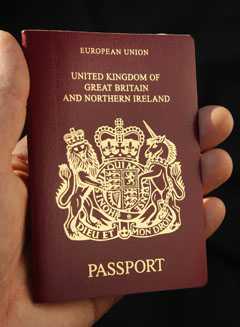The European Court on Human Rights (ECHR) issued on May 12 its largest judgment ever against any country, ruling that Turkey had to pay $123 million as compensation to relatives of missing Greek Cypriots and residents of a Greek enclave in Northern Cyprus.
The Cyprus vs. Turkey lawsuit was filed in 1999, twenty five years after the Turkish occupation of Northern Cyprus. In 2001, after ruling that the Turkish government had violated numerous articles of the European Convention on Human Rights, ECHR postponed making a determination of the penalty to be assessed to Turkey.
That decision came earlier this month, when the 17 judges of ECHR’s Grand Chamber issued their final judgment. By a vote of 16 to 1 (the Armenian and Cypriot judges voted with the majority, while the Turkish judge was the lone dissenter), ECHR ruled that the intervening 13 years had not invalidated the court’s 2001 judgment, as claimed by Turkey. By a vote of 15 to 2, ECHR held that the Turkish government had to pay $41 million, plus any tax and interest (if not paid within three months) for 1,456 Greek Cypriots missing as a result of Turkey’s invasion of Cyprus in 1974. By another 15 to 2 votes, ECHR judges decided that Turkey had to pay an additional $82 million plus any tax and interest (if not paid within three months) for damages suffered by residents of the Greek Cypriot enclave of Karpas peninsula in Turkish-occupied Northern Cyprus.
Right before the court’s judgment, Turkish Foreign Minister Ahmet Davutoglu made a vain attempt to derail ECHR’s anticipated negative decision by warning that a ruling against Turkey would undermine the ongoing negotiations to reach a settlement on the Cyprus conflict. The court rightfully ignored Davutoglu’s threat and went on to issue its firm judgment in favor of Cyprus.
Having failed to bully the judges, Davutoglu disdainfully declared that Turkey rejects the verdict of Europe’s top human rights court and boasted that his country will refuse to pay the $123 million in damages.
Davutoglu should be reminded that ECHR’s “Grand Chamber judgments are final” — not subject to appeal — and “all final judgments are transmitted to the Committee of Ministers of the Council of Europe for supervision of their execution,” according to the court’s records.
Turkish Foreign Minister’s arrogant declaration will certainly come back to haunt his government in the not too distant future. All members of the Council of Europe, without exception, are obligated to comply with ECHR’s rulings. The court’s judgments are binding on all member states. During the past several decades, Turkey has lost hundreds of judgments in the European Court and has paid, whether it liked it or not, countless millions of dollars in penalties. Turkey has no other choice, if it wants to remain a member of the Council of Europe. There have been some ECHR cases where Turkish officials had initially vowed that they would not pay the assessed penalties, but eventually fully paid the required compensation plus interest.
If the Turkish government sticks with Davutoglu’s boastful rejection, not only Turkey could be stripped of its membership in the Council of Europe, but also forfeit its slim chance of joining the European Union!
Member states of the Council of Europe do not have the right to decide whether they are willing to abide by ECHR’s judgments. Otherwise, why would 47 European countries collectively spend almost $100 million a year to maintain a court if its judgments are meaningless or subject to voluntary compliance?
Recently, Turkish leaders have gone on a rampage flaunting domestic and international laws, by jailing a record number of journalists, firing on peaceful demonstrators in Gezi Park, beating family members of a mine explosion victims, making anti-Semitic statements, threatening to expel the US Ambassador, and waving a finger at Pres. Obama in the White House!
The Council of Europe’s Committee of Ministers should not tolerate a rogue member state which is a major violator of human rights. The Council should put Turkey on notice that unless it makes immediate arrangements to pay the $123 million penalty, it would be expelled from the Council of Europe and have its assets in third countries seized to enforce the court’s judgment.
Europe should take a firm stand on this judgment, as there will be many more such verdicts against Turkey on Cyprus and possibly someday on Armenian restitutional and territorial demands….







